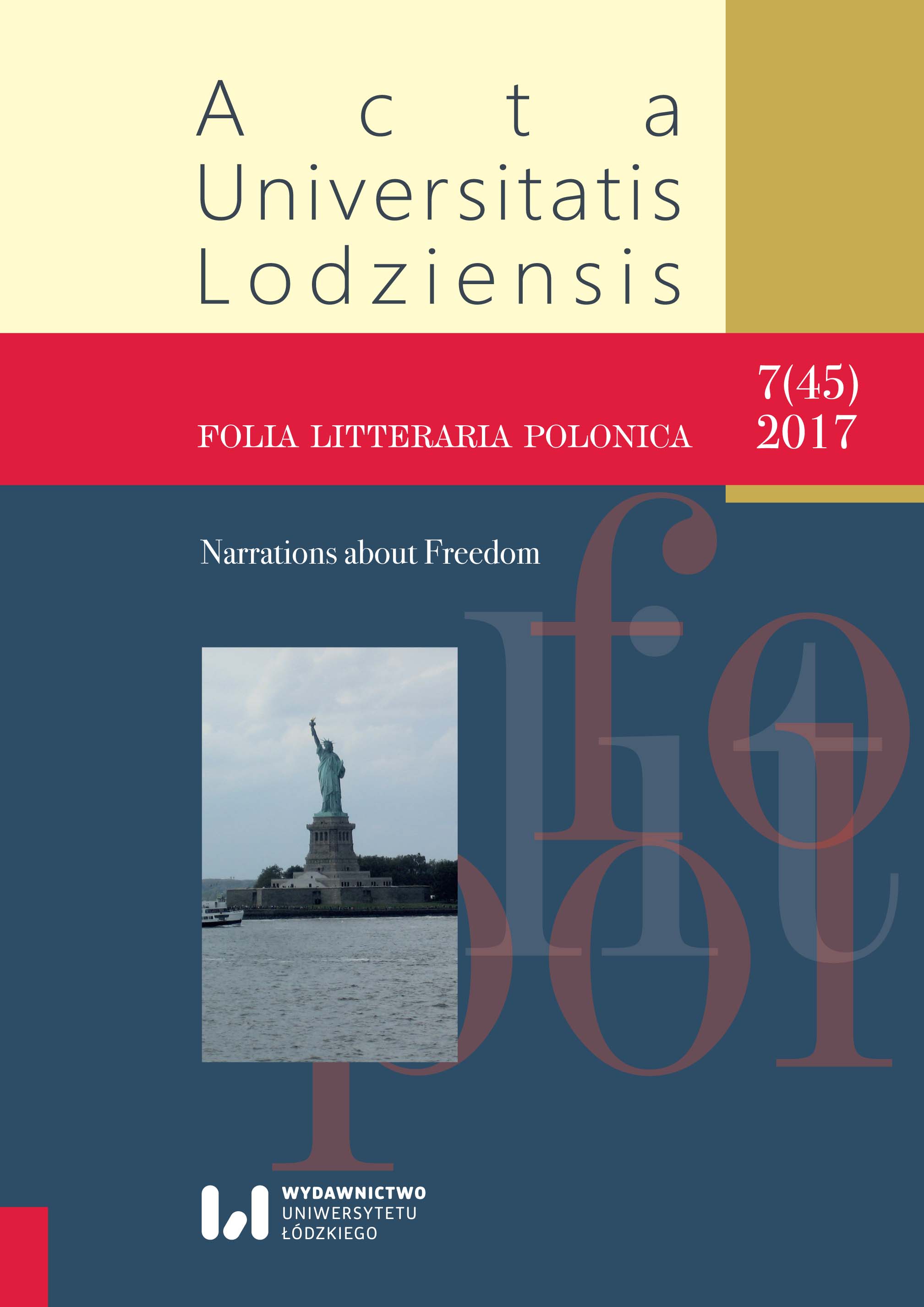Freedom of self-discreditation. On Witkacy’s letters to his wife
Freedom of self-discreditation. On Witkacy’s letters to his wife
Author(s): Sara KurowskaSubject(s): Polish Literature, Theory of Literature
Published by: Wydawnictwo Uniwersytetu Łódzkiego
Keywords: Witkacy’s letters to his wife; Pure Form; carnality; innards; low art; self-discreditation; correspondence; autobiographic; novel pact
Summary/Abstract: „If these letters are to be found by someone after my death, I will be brought into disrepute (…)” – wrote Witkacy to Jadwiga and he reminded his wife of destroying all the letters she receives from him. The question what and why could put the artist in disgrace seems fundamental and not so simple as one could assume. In order to find answer to this question I analyze letters in reference to Witkacy’s theory of Pure Form. According to Marshall Berman, the elements of antimodernity in modernism, i.e. an art which strived for originality and innovation, were of utmost importance because due to them the artist keeps his identity. Witkacy, an artist from the provinces, who wished to become an artist fitting modern West European art, and who tailored his theory of Pure Form to that, did not express his anti-modernist resistance directly. His resistance is visible in creating low, carnal, trivial and autobiographic forms – brought into disrepute from the point of view of modernist art and Witkacy’s own theory. Thus in his letters to his wife, Witkacy found a peculiar area of freedom – freedom of self-discreditation. Although he constantly blamed Jadwiga for lack of interest in philosophy, he was glad to communicate with her via the low art and low carnality.
Journal: Acta Universitatis Lodziensis. Folia Litteraria Polonica
- Issue Year: 45/2017
- Issue No: 7
- Page Range: 49-81
- Page Count: 33
- Language: English

